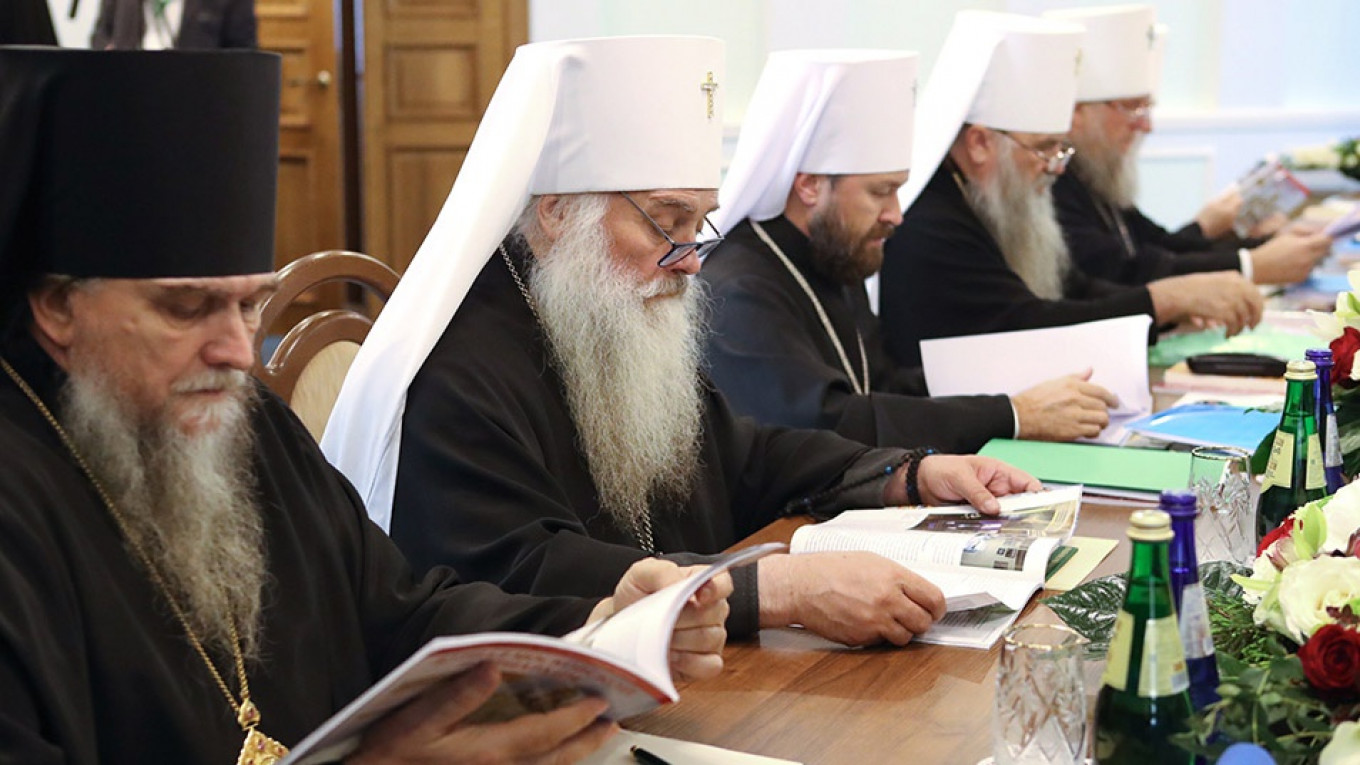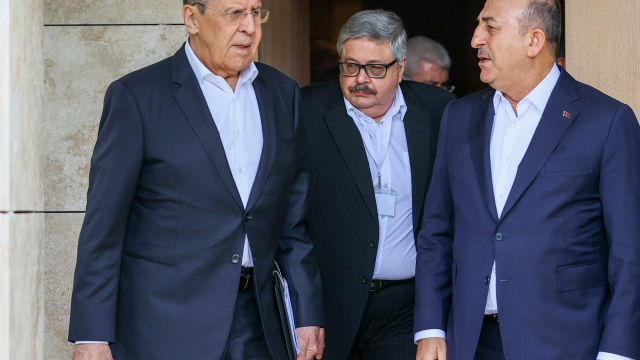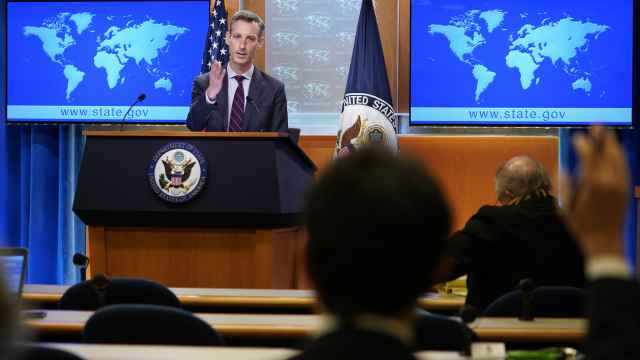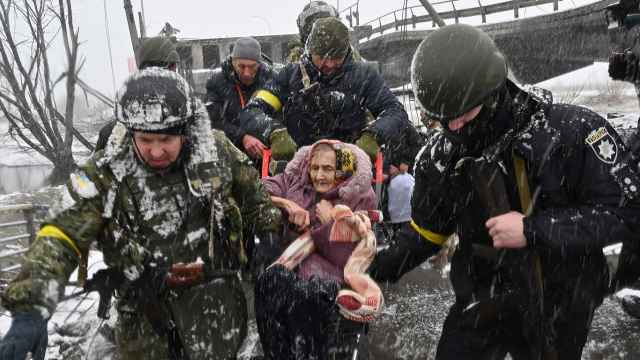On Oct. 11, the Ecumenical Patriarchate of Constantinople, “first among equals” in the Orthodox Christian world, decreed the Ukrainian Orthodox Church, Kiev Patriarchate, and the Ukrainian Autocephalous Orthodox Church to be canonical, or legitimate.
The move is a step on the road to the granting of autocephaly, or independence, to Ukrainian Orthodox Christians, allowing them to manage their own affairs without the oversight of the Moscow Patriarchate, which presides over the only Ukrainian Orthodox Church previously recognized as canonical.
Predictably, Russian reactions to the decision of Patriarch Bartholomew I and the Ecumenical Patriarchate’s Synod came swiftly. The Russian Orthodox Church, Moscow Patriarchate, which quickly called a synodal meeting of its own, cut ecclesiastical ties with Constantinople, blaming it for the “schism.”
President Vladimir Putin’s spokesperson, Dmitry Peskov, invoked rhetoric associated with Russia’s intervention in Ukraine’s Donbas region and the 2014 annexation of the Crimean peninsula.
In a clear implicit threat of violence — though he himself insisted Russia would rely only on political and diplomatic means to resolve the situation — Peskov said:
“In the event that the events which are developing take the course of illegal activities, then of course, just as Russia defends the interests of Russians and Russian speakers — and Putin has spoken about this many times—Russia will defend the interests of the Orthodox.”
Why such a heated response from Moscow? To be sure, Putin is afraid of losing power in an area he regards as Russia’s sphere of influence, and of seeing Russia’s power diluted in the Orthodox world. There, aggression in pursuit of influence vis-à-vis Constantinople has led to the isolation of the ROC, some of whose priests and hierarchs have been denied Greek visas they sought in order to make pilgrimages to Mount Athos.
The Moscow Patriarchate would certainly prefer to claim jurisdiction over the almost 30 million Ukrainians whose religious affiliations are distributed among the Ukrainian Orthodox Church, Moscow Patriarchate, the Kiev Patriarchate, the Ukrainian Autocephalous Orthodox Church, or who identify simply as Orthodox. And they have reason to be concerned the 12.8 percent of the population that professes loyalty to the Moscow Patriarchate may decline.
Both the Kremlin and the ROC leadership would prefer to be able to effectively exercise discipline over Orthodox clergy in Ukraine. This issue, embodied in the refusal of UOC-MP Metropolitan Onufryi to stand when the Ukrainian parliament honored Ukraine’s soldiers fighting in the conflict in Donbas, may have contributed to the erosion of the ROC’s position in Ukraine.
Trust in Russian Orthodox Patriarch Kirill has fallen precipitously from 44.4 percent to 15.3 percent over the last eight years, according to the Razumkov Center. It should be noted, however, that Metropolitan Onufryi’s trust has held steady at around 31-32 percent of the Ukrainian population.
There are also more subtle forms of power at stake. In the authoritarian dystopia George Orwell famously conjured in his novel “1984,” one of the Party’s slogans is, “Who controls the past controls the future. Who controls the present controls the past.”
That there is more than a grain of truth in this axiom is one reason Russia has reacted so sharply to the Ecumenical Patriarchate’s decree, which revoked the synodal letter of 1686 that granted the Patriarch of Moscow the right to ordain church hierarchs in what is now Ukraine, and what was then territory that had only recently been transferred from the Polish-Lithuanian state into the Russian Empire.
In emphasizing that the letter had been issued only for reasons of “oikonomia” — meaning it was undertaken outside of the ideals prescribed by canon law for pragmatic purposes — Constantinople effectively declared that, from a canonical point of view, there has been a Ukrainian nation deserving of its own self-governed church for centuries. This view of history, which bolsters Ukrainian sovereignty and self-determination, is one that a Russian state still devoted to the idea of Ukraine as a “little brother” cannot abide.
Many questions remain about what happens from here. Constantinople will likely issue a Tomos of Autocephaly — the document officially recognizing an Orthodox Church’s full independence — for Ukraine in November. In the meantime, Patriarch Filaret of the Kiev Patriarchate is maneuvering to take the lead while the processes for implementing Constantinople’s decision are worked out.
There will surely be some chaos ahead, including property disputes, lawsuits, and likely some violence, as well as a possible escalation of pro-Russian hostilities in eastern Ukraine. But inasmuch as the containment of Russian soft power, and of Russian attempts globally to undermine democratic institutions and support for human rights, is tied to the struggle for Ukrainian sovereignty, we must recognize that Constantinople’s bold move was the right one.
Christopher Stroop holds a Ph.D. in modern Russian history and the humanities from Stanford University and is currently a senior research associate with the Postsecular Conflicts project at the University of Innsbruck. The views expressed in opinion pieces do not necessarily reflect the position of The Moscow Times.
A Message from The Moscow Times:
Dear readers,
We are facing unprecedented challenges. Russia's Prosecutor General's Office has designated The Moscow Times as an "undesirable" organization, criminalizing our work and putting our staff at risk of prosecution. This follows our earlier unjust labeling as a "foreign agent."
These actions are direct attempts to silence independent journalism in Russia. The authorities claim our work "discredits the decisions of the Russian leadership." We see things differently: we strive to provide accurate, unbiased reporting on Russia.
We, the journalists of The Moscow Times, refuse to be silenced. But to continue our work, we need your help.
Your support, no matter how small, makes a world of difference. If you can, please support us monthly starting from just $2. It's quick to set up, and every contribution makes a significant impact.
By supporting The Moscow Times, you're defending open, independent journalism in the face of repression. Thank you for standing with us.
Remind me later.








